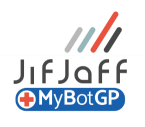The United Kingdom’s government recognises the immense potential of automation software in revolutionising healthcare delivery within the National Health Service (NHS). As patient numbers rise, along with an increase in long-term conditions, extended lifespans, and financial constraints, optimising the use of IT resources and available clinicians/administrators becomes crucial. This blog explores the key policy elements that underpin the UK government’s drive to leverage automation software in the NHS, enhancing patient care and optimising resources.
Meeting Growing Patient Demands
The UK’s population continues to grow, resulting in increased demands on the NHS. The government aims to streamline administrative tasks by implementing automation software, enabling healthcare professionals to focus more on direct patient care. Automation can alleviate the burden of repetitive paperwork, appointment scheduling, and data entry, allowing clinicians to spend valuable time with patients and provide higher-quality care.
Addressing the Rise of Long-Term Conditions
There has been a steady rise in the prevalence of long-term conditions, including diabetes, heart disease, and mental health disorders. Automation software can facilitate proactive monitoring, reminders for medication adherence, and personalised treatment plans for patients with chronic conditions. The NHS can enhance disease management, reduce hospital admissions, and improve patient outcomes by leveraging technology.
Extending Lifespan and Supporting Aging Populations
Advancements in healthcare have led to longer life expectancies and an aging population. Automation software can aid in managing the healthcare needs of older individuals by automating medication management, remote monitoring of vital signs, and facilitating telehealth consultations. These technologies empower patients to actively participate in their care while reducing the strain on limited clinical resources.
Optimising IT Infrastructure
Automation software offers the opportunity to use existing IT infrastructure within the NHS best. By implementing intelligent systems, data analysis, record keeping, and resource allocation can be automated, increasing efficiency and accuracy. This enables healthcare professionals to access real-time information, make informed decisions, and provide more personalised care to patients.
Mitigating Financial Limitations
The NHS faces significant financial challenges due to budget constraints. Automation software provides cost-effective solutions to optimise resource allocation. By automating administrative processes, the NHS can minimise administrative costs, reduce errors, and allocate funds where needed. Furthermore, automation can enhance operational efficiency, leading to cost savings and improved financial sustainability.
The UK government’s push for harnessing automation software within the NHS reflects a commitment to improving patient care while effectively managing the challenges of a growing population, increased long-term conditions, extended lifespans, and financial limitations. Through the implementation of intelligent automation systems, the NHS can streamline administrative tasks, personalise care, and optimise resources, ultimately ensuring a more sustainable and patient-centric healthcare system. By embracing technology, the NHS is poised to achieve higher efficiency, effectiveness, and, ultimately, better patient health outcomes.
JifJaff offers a fully managed and scalable solution for NHS Primary Care. Our team of experts handle all processes from implementation to maintenance, allowing you to focus on what matters most – your business! Our solution grows with you from practice, or large ICS with complex needs, we adapt to meet your requirements. With our comprehensive solutions, you can save time, reduce costs, and streamline your operations knowing you are fully supported.
